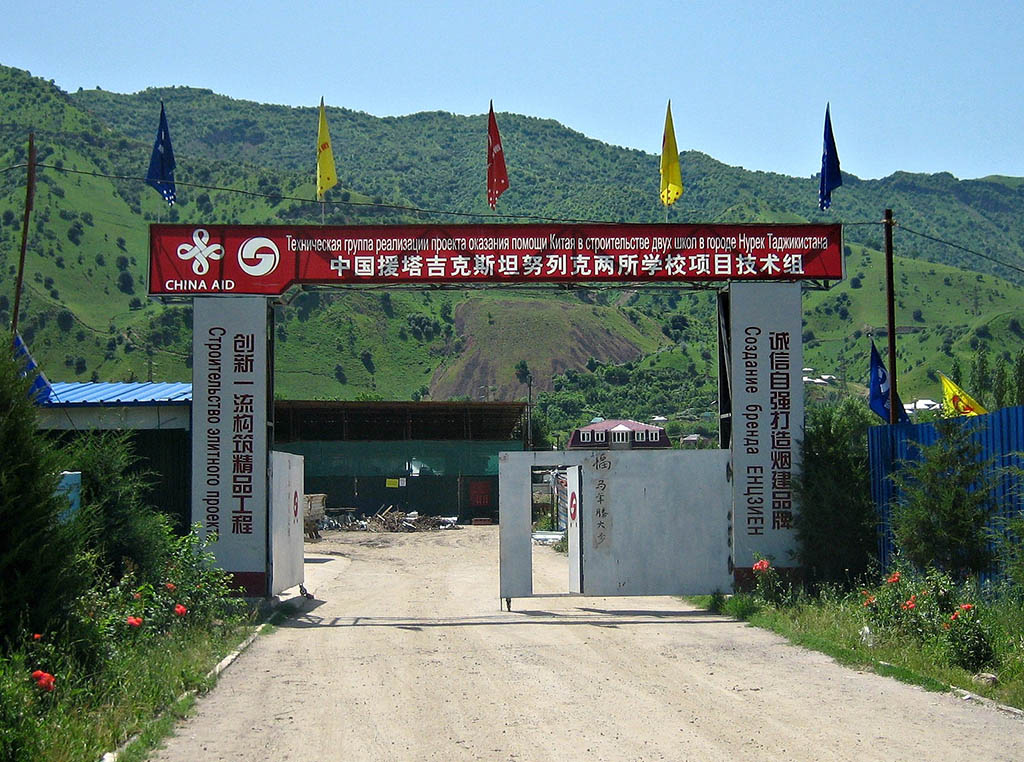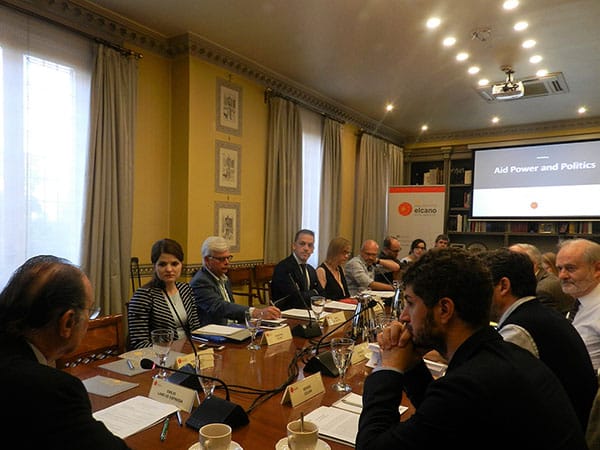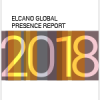
Last week, the Elcano Royal Institute hosted a workshop on Aid, Power and Politics. Academics, analysts and practitioners from Argentina, Canada, France, Hungary, Italy, Norway, Spain, the United Kingdom and the United States gathered to debate the fundamentals of global aid.
For the last three decades, Development Studies have approached aid mainly from the perspective of its management: is aid effective? which sectors or countries should be targeted? how to balance bilateral and multilateral aid? However, recent political developments such as the Brexit process, the Trump Administration, the rise of populist movements in Europe, or the strengthening of the emerging donors (particularly China) call for a new angle in the study of aid. In this sense, new-old questions arise: why do countries give aid in the first place? why and how are aid policies institutionalised? how does aid interlink with the overall external action and foreign policy of countries? is aid a tool for regional or global power or influence? is this a path to global governance?
In short, the aid debate needs to go back to basics.
The workshop approached this debate from three different angles:
- How do International Relations (IR) theories explain aid policies?
- Which are the domestic political seeds and the international use specific donors’ aid policies?
- How aid global norms are built and how do they shape countries’ behaviours?

As for the first topic, Gino Pauselli, from the University of Pennsylvania, analysed aid from various theoretical perspectives connecting the study of aid with the classical schools of thought in International Relations (Realism, Liberalism, Constructivism…).
In relation to specific countries’ aid policies, big, small, old and new donors were explored. Henry de Cazotte, former Director at the Agence Française de Développement, described the US elites’ consensus on aid. Myles Wickstead, from King’s College in London, presented the UK as an aid super-power at a crossroads. Olav Stokke, from the Norwegian Institute of International Affairs, assessed the determinants of aid in some of the best-reputed donor countries (Norway, Sweden and Denmark). Krisztina Szabó (Corvinus University of Budapest), Balázs Szent-Iványi (Aston University) and András Tétényi (Corvinus University of Budapest) jointly explored Government-NGO relations and the politics of aid in Hungary. And, finally, we (Aitor and Iliana) interpreted the history of Spain’s involvement in international aid as that of the rise and fall of donor complying with external norms but with scarce national ownership of the aid policy.
Debates on those seven very different donors revealed that domestic political seeds of aid are roughly the same everywhere: leadership –such as that of Clare Short in the British political landscape of the late 90s–, values –solidarity in Scandinavian countries, or liberal democracy in the US–, compliance with international norms –as in Hungary and Spain–, or the weight of different domestic political actors and lobby groups (Administration, Government, NGOs, the business private sector…) and how these interact. We could conclude that different doses and combinations of those ingredients result in different modalities of aid (both in shape and in volume) that, in the end, become the basic features of different development policies.
Regarding aid norms, Liam Swiss (Memorial University of Newfoundland, Canada) and Nilima Gulrajani (from the Overseas Development Institute – ODI) presented these as of in a state of flux, where contending agendas of traditional donors collide between them and also with those of emerging countries. From the perspective of Eduardo Missoni (Bocconi University, Italy) and Fabrizio Tediosi (Swiss Tropical and Public Health Institute), development assistance in health has strongly influenced policymaking in that sector (towards, for instance, privatization of health assistance). David Williams, from the Queen Mary University of London, presented an analysis of the use of aid for democracy promotion purposes. Aid norms interlink with aid narratives and the latter might have evolved recently from the concept of solidarity to that of security so we (Iliana and Aitor) explored this transition in the European context.
Those presentations were enriched with vivid debates among these analysts and also with key practitioners, most of them related to the definition and practice of Spanish development policy. In this sense, we had the opportunity to share our ideas with Cristina Gallach (High Commissioner for the 2030 Agenda), Carlos Iturgaiz (Member of the European Parliament, Popular Party – PP), Pablo Bustinduy (Member of the Spanish Parliament, Podemos Party), Félix Fernández-Shaw (Director at the European Commission DG DEVCO), Gonzalo Fanjul and Virginia Rodríguez (Barcelona Institute for Global Health), Francisco Montalbán (Ambassador on Special Mission for the 2030 Agenda), Lucía Chicote and Sergio Colina (AECID), Jaime Atienza (Oxfam) and Ernest Aibar (Focus 2030).
All these contributions, together with additional analyses on IR theories applied to aid (by Bernabé Malacalza from CONICET), on emerging donors such as Brazil (Guillermo Santander, Complutense University of Madrid) and South Africa (by Elizabeth Sidiropoulos, Director at the South African Institute of International Affairs – SAIIA), on ‘old’ donors like Japan (Marie Söderberg, the European Institute of Japanese Studies at Stockholm School of Economics), on aid in the populist discourse (Margarita Gómez-Reino, from UNED in Spain) and on the gender agenda as a global norm (Lars Engberg-Pedersen, from the Danish Institute of International Studies) will complete a book on “Aid, Power and Politics” that will be published next year by Routledge.
We would like to take this opportunity to sincerely thank all participants for an excellent conversation on aid as well as Helena Hurd (from Routledge) for coming up with this idea, over wines, at Bergen, one year ago. Looking forward to continuing the discussion.



